Stop! Don't Void Your Ford Warranty: A Guide to Aftermarket Parts and Maintenance Records
Understanding Your Ford Warranty and Your Rights
First things first: let's get acquainted with what your Ford factory warranty actually covers. Generally, it's a promise from Ford that your vehicle is free from defects in materials and workmanship for a specified period or mileage. This coverage is designed to protect you against unexpected manufacturing faults, not issues arising from accidents, misuse, or improper maintenance.
However, the most crucial piece of information for any Ford owner considering aftermarket parts or independent servicing is the **Magnuson-Moss Warranty Act**. This federal law, enacted in 1975, is your best friend. In simple terms, it prevents vehicle manufacturers from mandating the exclusive use of their branded parts or service facilities as a condition to maintain your warranty, unless they provide those parts or services free of charge. This means Ford cannot void your entire warranty just because you used an aftermarket oil filter or had your oil changed at an independent shop, assuming those parts and services meet the manufacturer's specifications and don't directly cause a failure.
It's important to differentiate between a part failure and an installation issue. If a non-Ford part causes damage to another component, Ford may deny the warranty claim for the damaged component, but they cannot void your entire warranty for unrelated systems. For example, if an improperly installed aftermarket suspension component causes a steering rack failure, Ford may not cover the steering rack, but your engine and transmission warranty would remain intact. This distinction is vital for understanding your consumer rights.
Aftermarket Parts: Friend or Foe?
The world of aftermarket parts is vast and varied, offering everything from performance upgrades and cosmetic enhancements to direct replacement parts that can be more affordable than their Original Equipment Manufacturer (OEM) counterparts. So, can you use them without voiding your Ford warranty? Absolutely, with some important caveats.
As per the Magnuson-Moss Act, Ford cannot deny a warranty claim simply because you've installed an aftermarket part. The burden of proof lies with the manufacturer to demonstrate that the aftermarket part *caused* the failure of the warranted component. For instance, if you install a custom exhaust system and your infotainment system stops working, Ford cannot refuse to cover the infotainment system under warranty just because you have an aftermarket exhaust.
However, if your aftermarket cold air intake system somehow contributes to an engine failure (e.g., due to improper filtration or tuning), Ford *could* deny the warranty claim for the engine. This is why choosing high-quality, reputable aftermarket parts is paramount. Always research brands, read reviews, and ideally, choose parts designed specifically for your Ford model. Furthermore, proper installation is just as critical as the part itself. If an aftermarket part is installed incorrectly and causes damage, that damage may not be covered by your Ford warranty.
For routine maintenance items like oil filters, air filters, or brake pads, using quality aftermarket options that meet or exceed Ford's specifications is perfectly acceptable. Just ensure they are the correct type and are installed properly.
The Golden Rule: Keep Meticulous Maintenance Records
If there's one piece of advice that will serve you best in any warranty situation, it's this: **keep meticulous maintenance records.** This cannot be stressed enough. Whether you're a DIY enthusiast, use an independent mechanic, or even go to a Ford dealership, having a comprehensive paper (or digital) trail of every service, repair, and part replacement is your ultimate defense.
Why are these records so vital? In the event of a warranty claim, Ford may ask for proof that you've followed their recommended maintenance schedule. If you cannot provide evidence that essential services (like oil changes, tire rotations, fluid checks, etc.) were performed as specified in your owner's manual, Ford *could* argue that the lack of maintenance contributed to the failure, potentially leading to a denied claim.
What should you record? Everything! For every service, note the date, the vehicle's mileage, a detailed description of the service performed (e.g., "oil and filter change," "tire rotation," "spark plug replacement"), and who performed it (e.g., "Your Independent Auto Shop" or "DIY"). Always keep original receipts for all parts purchased and invoices for any labor performed. If you do the work yourself, keep the part receipts and jot down notes about what you did.
Consider creating a dedicated folder for your Ford's maintenance history, or use a digital app or spreadsheet. Scan physical receipts and store them in a cloud service for redundancy. This golden rule applies universally, regardless of whether you're using OEM or aftermarket parts, or where you get your service done. These records demonstrate your commitment to proper vehicle care and are invaluable should a warranty dispute arise.
Common Misconceptions Debunked
Many myths persist about vehicle warranties, often leading Ford owners to make unnecessary or costly decisions. Let's clear up a few common misconceptions:
- Myth: You must have all service performed at a Ford dealership to maintain your warranty. This is perhaps the most widespread myth. As discussed, the Magnuson-Moss Warranty Act explicitly protects your right to choose where your vehicle is serviced. As long as the independent shop performs the work according to Ford's specifications and uses appropriate parts, your warranty remains valid.
- Myth: Performing DIY maintenance automatically voids your warranty. False! You are absolutely allowed to perform your own maintenance, from oil changes to air filter replacements. The key is to do it correctly, use parts that meet Ford's specifications, and, as we've emphasized, keep impeccable records of everything you do, including receipts for parts.
- Myth: Any aftermarket part voids the entire vehicle warranty. Again, incorrect. Only the component or system directly affected by a faulty aftermarket part or improper installation can have its warranty coverage denied. The rest of your Ford's warranty remains intact. For example, installing an aftermarket stereo won't void your engine warranty.
Armed with this knowledge, you can approach maintenance and modifications with confidence, knowing your rights as a consumer.
When in Doubt: Communicate with Your Dealer
While this guide aims to empower you with knowledge, there might be specific situations where you're unsure about a particular modification or repair's impact on your Ford warranty. In these instances, open communication with your Ford dealership's service department can be incredibly beneficial. Before undertaking a significant modification or if you have concerns about a specific aftermarket part, consider discussing it with them.
While their primary goal is to service your vehicle and uphold Ford's warranty policies, a friendly conversation can sometimes clarify potential issues or even confirm that a modification you're planning is perfectly fine. If you do have a discussion, and especially if you receive advice or approval, try to get it in writing (an email follow-up summarizing the conversation can be useful). Building a good relationship with your service advisor can also be helpful in the long run.
Conclusion
Navigating your Ford warranty doesn't have to be a source of stress. By understanding the protections offered by the Magnuson-Moss Warranty Act, making informed choices about quality aftermarket parts, and diligently maintaining comprehensive service records, you can confidently customize, maintain, and enjoy your Ford without the constant fear of voiding your warranty. Remember, knowledge is power, and with the right approach, your Ford's warranty can coexist happily with your desire for personalization and smart maintenance. Drive on!Where can I find my VIN?

Related Topics
- Selling Your Cadillac? Why Warranty Transferability Adds Resale Value
- Beyond the Basics: Lesser-Known Honda Warranties That Can Save You Money (Rust, Emissions, & Seat Belts)
- New vs. Certified Pre-Owned: Which Mazda Warranty is Right for You?
- Buying Used? How the Hyundai Warranty Transfers (and What Coverage You Keep!)

